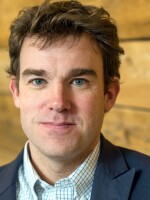Updated 6:45 p.m.
The leader of Vermont’s higher education system plans to close three campuses next fall and eliminate 500 jobs to close "significant" budget gaps caused by the COVID-19 pandemic.
Northern Vermont University, which has campuses in Johnson and Lyndon, and Vermont Technical College’s campus in Randolph Center will all close under a plan announced by Vermont State College System Chancellor Jeb Spaulding on Friday.
Spaulding told VPR there is no back up plan.
“We don't have a Plan B,” he said. “I mean, our Plan B would be, unless there's additional ongoing funding somewhere, we would really be in a position that questioned our ability to continue operations."
The state college system is projecting an immediate deficit of up to $10 million, due in large part to refunding room and board charges to students who were sent away from campus when the pandemic started. And the future looks even worse – the system said enrollment next year will drop 15-20% due to the pandemic, creating more budget shortfalls.
"These are very painful decisions, but they are necessary because we must preserve the VSCS for generations of Vermonters who rely on public higher education to achieve their personal and professional dreams." — Jeb Spaulding, VSC Chancellor
“These are very painful decisions, but they are necessary because we must preserve the VSCS for generations of Vermonters who rely on public higher education to achieve their personal and professional dreams,” Spaulding said in a written statement. “We are in truly unprecedented times like nothing we have ever experienced before in our lifetimes and we know the impacts of COVID-19 will linger for months, maybe years. We cannot wait and hope for recovery, we must act decisively to chart a course toward long-term viability.”
NVU programs would fold into Castleton University, and Vermont Technical College would consolidate into its Williston campus and other locations.
The consolidation plan will be presented to the system’s board of trustees on Monday. Spaulding said the chancellor's office will also be downsized, though he did not provide details.
More from VPR: State Colleges Chancellor: 'We Are Looking At A Reconfiguration'
Gov. Phil Scott said the state won’t have the financial wherewithal to solve the college system’s revenue problems, and that it is likely an unavoidable consequence of the coronavirus pandemic.
“I don’t know how much choice I have at this point in time,” Scott said during a press briefing Friday. “This coronavirus has had an incredible impact on our state in so many ways. This is just one sector that’s been impacted.”
The governor noted the Vermont State College System was treading water financially for a couple years before the arrival of COVID-19.
“We knew that the financial struggles of the Vermont college system was an issue,” Scott said. He added the pandemic had “a profound effect in a more immediate way than we had anticipated.”
"This coronavirus has had an incredible impact on our state in so many ways. This is just one sector that’s been impacted." — Gov. Phil Scott
Scott said he plans to work with the Legislature to help the state college system, but that the downsizing plan unveiled by the chancellor Friday is part of the new normal facing businesses and institutions across the state.
“We have some issues that we’re going to have to deal with in the future. That’s why whatever we do, whatever we invest in, has to keep that in mind,” he said. “It’s not going to bring us back to the way we were before, because the future’s going to look much different.”
State senators reacted with shock and concern Friday as they heard the news. Caledonia Sen. Joe Benning, who represents the county hosting the Lyndon campus of NVU, a major employer in the Northeast Kingdom, said trustees should not be making the closure decision on their own.
“What bothers me here is that you've got a group of unelected officials that are about to make a decision that will have a tremendous impact on geographical areas of the state,” Benning said. “Those geographical areas are not their responsibility. It's our responsibility.”
Lamoille Sen. Richard Westman warned of the massive financial impact the closures would have on towns like Johnson, where the other NVU campus is located.
"It will have devastating effects to all of the Northeast Kingdom, all of Lamoille County, and all of the region across the northern part of the state." — Lamoille Sen. Richard Westman
“The poorest community within my county is Johnson,” Westman said. “It will have devastating effects to all of the Northeast Kingdom, all of Lamoille County, and all of the region across the northern part of the state.”
Lyndon Select Board Chair Christian Thompson compared closing NVU to shutting down a manufacturing plant.
“You know in the Kingdom here, we’ve been struggling for a while,” he said. “And it really just feels like we've been kicked while we're down. So it's disastrous. The mood in town is real somber. But there's a real uprising of people reaching out to our local legislators, to the governor's office, to the chancellor. We feel like we can still have a voice and make an impact on the decision. At least we hope we can.”
Before Friday’s announcement from Vermont State Colleges, both the state colleges system and the University of Vermont asked lawmakers for substantial increases in state funding to recover from the impact of the COVID-19 pandemic.
“They're both talking about something in the neighborhood of $25 million, in addition to their existing appropriations,” said Senate Education Committee Chair Philip Baruth. “So in the case of UVM, that's $42 million plus the $25 [million].”
He added UVM's finances were strong, but the institution now faces significant costs due to the coronavirus.
What are your questions, concerns and experiences with the coronavirus? Share them with VPR, here.









